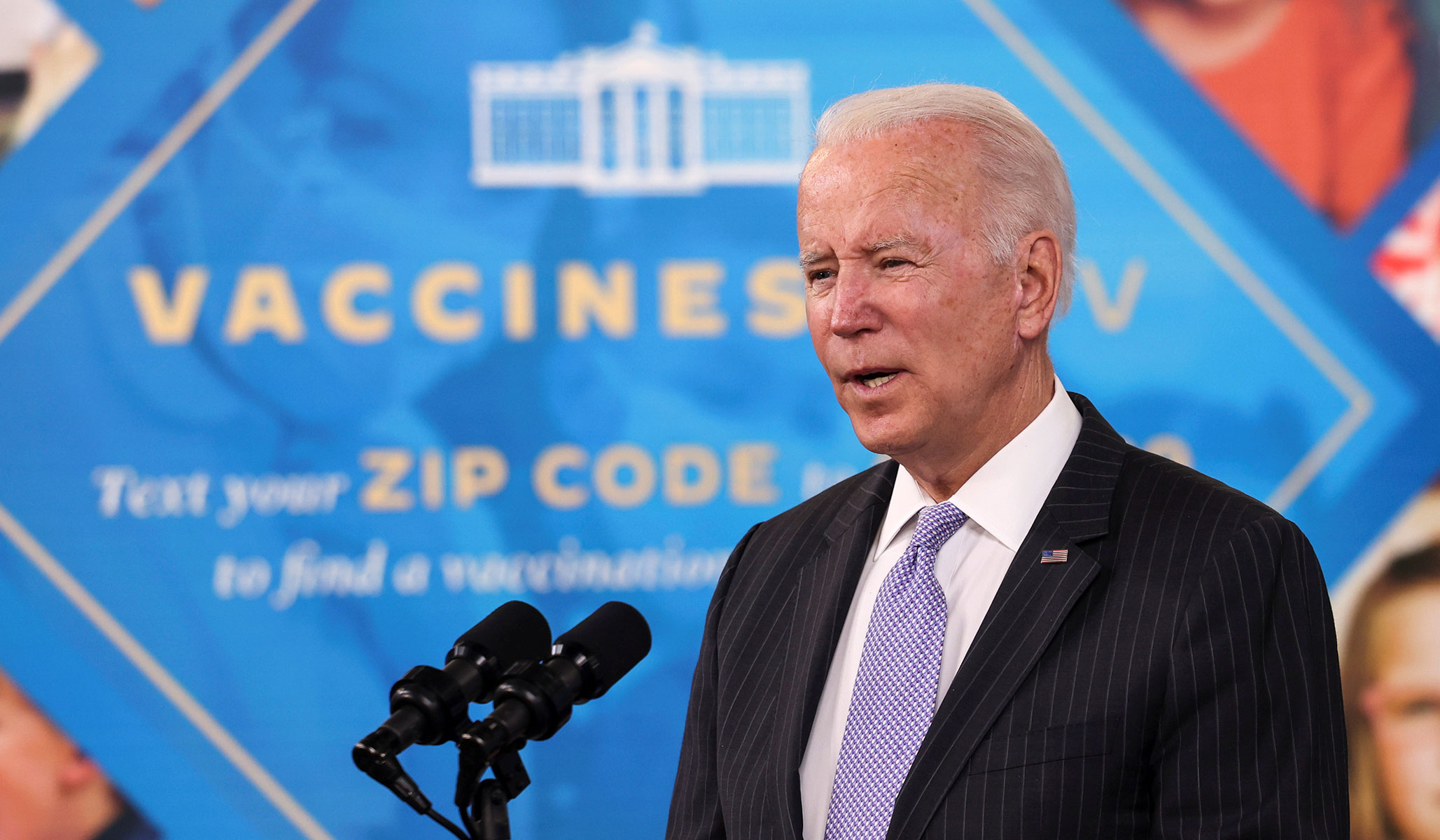On Thursday, the U.S. Supreme Court acted swiftly to block the enforcement of President Biden’s attempt to impose a sweeping Covid- vaccine mandate on large employers that would have impacted 84 million Americans. This is welcome news.
Biden, in an effort to coerce holdouts into getting vaccinated, tried to claim OSHA emergency powers to require all businesses with 100 or more employees to force workers to take the Covid vaccines or submit to weekly testing. The rule would have applied to two-thirds of private employers, making it unprecedented in scope.
In the 6–3 decision (with the liberal bloc predictably dissenting), justices granted a stay that prevents the Biden administration from implementing the rule, determining that the National Federation of Independent Businesses and 27 states challenging the rule would be likely to prevail on the merits.
The Biden order rested on a rarely deployed vehicle available to the Occupational Safety and Health Administration known as the Emergency Temporary Standard, which provides a fast-track process for implementing rules, bypassing the normal public-comment period. The majority pointed out that, of the nine previous times since its creation in 1970 that OSHA cited the standard (prior to the coronavirus pandemic), six rules have been challenged in court, and only one use had been fully upheld. None of the prior uses had been as broad as what Biden was attempting.
When the Court rejected the Biden’s eviction moratorium in last year’s Alabama Association of Realtors vs. HHS decision, justices wrote, “We expect Congress to speak clearly when authorizing an agency to exercise powers of vast economic and political significance.”
Citing this standard, the majority concluded that Congress had not given OSHA such broad authority to enact a de facto vaccine mandate. While OHSA has the authority to regulate workplace safety, justices reasoned, in this case, it was attempting to use that authority to issue a sweeping rule to address a public-health issue in which the threat is not limited to the workplace.
“Although COVID–19 is a risk that occurs in many workplaces, it is not an occupational hazard in most,” the majority wrote. “COVID–19 can and does spread at home, in schools, during sporting events, and everywhere else that people gather.”
The justices went on to write that, “Permitting OSHA to regulate the hazards of daily life—simply because most Americans have jobs and face those same risks while on the clock—would significantly expand OSHA’s regulatory authority without clear congressional authorization.”
A concurrence, written by Justice Gorsuch (and joined by Justices Thomas and Alito), articulated that the Constitution clearly gives the power to Congress, not OSHA, on how to respond to a pandemic – and that the fact that the nation is in the midst of an emergency should have no influence on their decision. Gorsuch wrote that, were justices to adhere to properly applying the law, “only in more tranquil conditions, declarations of emergencies would never end and the liberties our Constitution’s separation of powers seeks to preserve would amount to little.”
The justices were more receptive to a separate Biden mandate on health-care workers, with Chief Justice Roberts and Justice Kavanaugh joining the liberals to allow it to go into effect. The decision hinged on the authority granted to the secretary of HHS by Congress to administer Medicare and Medicaid and impose requirements on hospitals accepting payment from the programs. The law says that the secretary of HHS can take actions he deems “necessary in the interest of the health and safety of individuals who are furnished services in the institution.” The majority concluded that it was within the authority of Secretary Xavier Becerra to determine that vaccination of health-care workers was necessary to ensure the safety of Medicare and Medicaid patients (especially given that the Medicare population is older and more vulnerable).
While we side with Justice Thomas and the rest of the conservative dissenters (Justices Alito, Gorsuch, and Barrett) who spelled out why the HHS secretary’s authority should be seen as narrower, unfortunately the vast powers granted to the department through the Medicare and Medicaid programs made this mandate a more difficult legal challenge than the one to the OSHA rule.
The Court’s decision to block the vaccine mandate on large private employers should be considered a victory for the separation of powers and another defeat for Biden’s clumsy attempt to subvert the rule of law.
